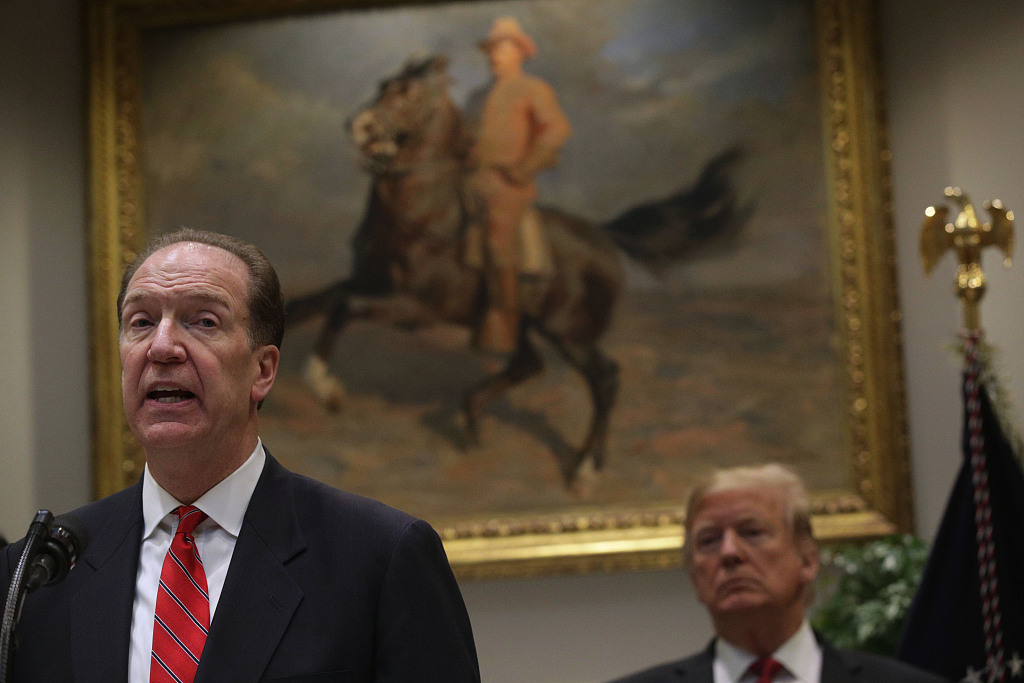David Malpass, US President Donald Trump's choice to be the next World Bank president, won unanimous approval from the institution's executive board recently, adding uncertainty to future collaboration between the development lender and China-proposed Belt and Road Initiative (BRI).

US President Donald Trump listens as Under Secretary of the Treasury for International Affairs David Malpass speaks during a Roosevelt Room event at the White House February 6, 2019 in Washington, DC. (Photos: VCG)
Previous World Bank President Jim Yong Kim, who announced in January that he would step down to join a private infrastructure fund, is a supporter of the BRI.
Since his unexpected resignation, speculation has been swirling as to whether the US government, as a key stakeholder of the lender, is dissatisfied with Kim's support toward the BRI. The Trump administration has squeezed US contributions to international organizations and reportedly pushed Kim to reduce financing for China.
David Malpass, a top US Treasury official in Trump administration, is a staunch supporter of the US president. His appointment as head of the World Bank has sparked concerns that the lender may reduce support for projects in China and change its attitude toward the BRI, pressuring China to make its BRI loans more transparent. But frankly speaking, as World Bank president, Malpass's top priority shouldn't be to target China, but to alleviate poverty and promote economic development in developing countries.
Having long been seen as a loyalist of Trump, David Malpass now faces the challenge of switching roles from a US official to the head of the world's largest development lender, which is dedicated to providing financing to developing nations to aid their economic advancement.
Many developing nations suffer from underdeveloped infrastructure, so investing in ports, rail links, and airports under the BRI framework is an effective way to alleviate poverty in those countries. The World Bank and BRI have common ground on which they can enhance coordination.
BRI financing given by China-led lenders is not crowding out financing from the World Bank. China has no intention to form a parallel system of development financing to reshape the current international order. The World Bank has played an important role in development-oriented poverty reduction over the past decades. Hopefully, Malpass will not shift the World Bank's priority from supporting economic growth in developing countries to competition against China in development financing.
Cover image: David Malpass, under secretary for international affairs at the US Department of Treasury, listens during a Bloomberg Television interview in New York, US, on Friday, Nov. 30, 2017.


